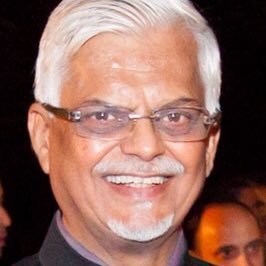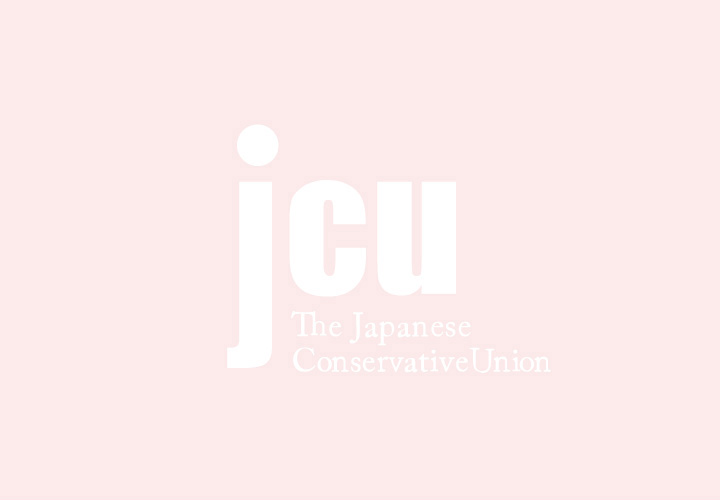JCUに協力してくださっている、インド商工会議所連合会(FICCI)前会長サンジャヤ・バル博士(Dr. Sanjaya Baru)から、シンガポールで行われた米朝首脳会談についての論説が届きましたのでお伝えします。

(サンジャヤ・バル博士)
————
【トランプ・金正恩会談は、非核化についての会談だったのか、再統一についての会談だったのか?】
(サンジャヤ・バル)
東アジアにおいて、ドナルド・トランプ米大統領はヒーローとして記憶されるか、はたまた無価値な人物として記憶されるかのどちらかだろう。トランプと北朝鮮の指導者金正恩との間で近日開催されたシンガポールでの首脳会談は、両国の政府の長による初めての会談であったがゆえに、「歴史的」と評されている。
確かに、彼らの取り決めが遵守されて国家間の和解の新しいプロセスを生起し、結果として将来のどこかの時点で二つの朝鮮の統一をもたらすならば、実際にこの会談は真に歴史的なものとして記憶されるかもしれない。
しかし、金が約束を遵守できず、トランプが米国の軍産複合体とワシントンD.C.の政策エリートに抑制されるならば、このサミットの成果はシンガポールのセントーサ島にあるカペラ・ホテルの滞在利用率を増加させたということにとどまるだろう。
シンガポールサミット後の二十四時間、インターネットはアメリカの政策エリートによる侮蔑的な批判で溢れていた。
ある国際関係論の学者はテレビチャンネルのCNNに語った。「サミットの会議は国家のトップである対談者たちに独占されるものではない。サミットは下から建築されるのであって、上から構築されるのではない」、と。
これがまさに政策エリートの知的な傲慢をよく表している。組織的かつ知的な裏方たる彼らは、自分たちこそがサミットの会議の設計者だと思っており、独自の精神を持つ人気政治家を憎く思っている。ほとんどの知識人たちはトランプの「精神」に懐疑的なままであるが、実際のところ、トランプは自分のやり方によって問題を解決しようと決意してカペラ・ホテルに行ったのである。おそらく、彼に最も近しい側近たちでさえ、トランプの記者会見での発言の一部には驚いただろう。
実際、私はインドの首相官邸に勤務していた間に二つのサミットの準備作業を見たが、サミットレベルにおいては、政治指導者が彼のカウンターパートと独自のアジェンダを追求する一方で、共同宣言の起草は官僚たちに進んで任せることがあった。
まさにこれと同じことがシンガポールでも起こったのだと思われる。トランプ大統領の側近たちによって起草されたのであろう宣言があったが、この会議の最大の収穫は、二国のトップが密室において一対一で議論したことである。
サミットというものは公式文書の詳細を云々することではない。詳細を詰めることは外交官が行い、メディアが報道し、アナリストが議論することである。有意義なサミットというものはたいていプロセスの出発点であって終着点ではない。それはトップダウンのプロセスであり、ボトムアップのプロセスでは決してないのである。
米国の政策エスタブリッシュメントは、政府機関であれ政府外の政策エリートであれ、北朝鮮の非核化に注目してきたのだろう。それは米国大統領という存在にとって本当に政治上の優先事項なのだろうか。朝鮮半島の非核化の道筋が確定することが米国にとって本当に重要なのか。東アジアにおいて、米国が戦略上本当に優先すべきことは一体何なのか。北朝鮮を非核化して、中国とロシアだけ世界の隅、しかし確かに存在する核保有国のままにするのか。韓国と日本など同盟国との防衛関係を弱めて、中国をこの地域における支配的勢力のままにするのか。
米国の政策エリートはトランプが成し得ないと思っているのだろうか。
トランプは狂っているのだろうか――それとも、一見狂気に見えるそれには何か理由があるのだろうか。
私は就任後二年間のトランプ大統領の政治と政策を研究して、彼は大局観がある男で、詳細は信頼できる側近に任せており、側近が期待に沿わなければ(前任の国務長官と国家安全保障問題担当補佐官のように)、人がただ服を替えるように側近を替えるだけなのだ、と確信している。
トランプ大統領にとって、シンガポールサミットは単に非核化と、米国の東アジアでの国防支出の水準を引き下げ、日本や韓国などの東アジアの同盟国により多くを負担させるための会談だったのではない。たまたま、記者会見で誰が北朝鮮の非核化のコストを負担するのかについて質問されたとき、彼の返答は迅速だった。――「日本と韓国と中国だ」。結局、これらの国こそが北朝鮮の非核化によって直接の利益を受けることになるであろう。
シンガポールサミットは、水面下で進行しているアジアの長期的な変化、そしてその変化に対応するための米国戦略を背景として捉えられなくてはならない。中国はこのサミットの成果を歓迎したが、金とトランプの新たな関係は憂慮されるべきである。二つの朝鮮の和解プロセスに続いて生じた米朝関係の正常化は、半島に広く存在している再統一に向けられた感情を解き放つかもしれない。
朝鮮の人々は、ヨーロッパにおけるドイツ人と同様に、彼らの長い歴史からプライドを引き出している。ドイツ人のように、朝鮮人も彼らの文化の起源と民族のアイデンティティを紀元前1世紀にあるとしている。2000年にわたり文明のアイデンティティを共有した後で、朝鮮の人々は20世紀半ばに二つの政治的単位に分断されてしまった。
ドイツ人は幸運にも四半世紀前、冷戦が終結したときにその分断を終えた。
嗚呼、一方の朝鮮人はこれまでのところそのような幸運に恵まれていない。
1993年のP.V.ナラシンハ・ラオ・インド首相による初の大韓民国公式訪問の前夜、当時インドではほとんど知られていなかった国について一連の記事を書くために、私は韓国を訪問した。ソウルで私が訪れた場所のうちの一つは、新しく設立された韓国統一研究院(KINU)である。その任務は、ドイツの分断と統一の経験を研究し、どうすれば二つの朝鮮が最終的な再統一を達成できるかについてのポリシー・ペーパーを用意することだった。あと四半世紀も経てば、KINUは再統一の青写真を用意することができるだろう。
二つの朝鮮が必要としているのは、協力的な国際環境および地域環境である。
全ての大国のうちで、米国だけが朝鮮の統一から戦略的に利益を得ることができる。
今週のはじめ、シンガポールにおいてトランプ大統領が始動させようとしていたのは朝鮮の非核化のプロセスではなく、朝鮮の再統一のプロセスだったという可能性はあるだろうか。彼は次の数ヶ月を見ていたのか――それともこれから先の数年を見ていたのか。金指導者との会談は、実際にはその地域における米国の影響力――プレゼンスとまでは言わないまでも――を強化するためのより広く長期的な戦略の一部だったのだろうか。
頂上に登る者はより低い丘、谷、平野に住む者たちとはまったく異なった世界についての視点を持っている。シンガポールサミットという頂点に立った時、トランプと金が地平線に何を見たのか。それを人々は知りたがっている。
————
【WAS TRUMP-KIM SUMMIT ABOUT DENUCLEARISATION OR RE-UNIFICATION?】
(SANJAYA BARU)
United States President Donald Trump will be remembered in East Asia either as a Hero or a Zero. The Singapore Summit, HELD RECENTLY between Mr Trump and North Korean President Kim Jong-un, has been described as ‘historic’ because the heads of government of these two countries were meeting for the first time.
However, it could, in fact, be remembered as truly historic if it succeeds in delivering on its promises and generates a new process of national reconciliation resulting eventually, at some time in the future, in the unification of the two Koreas.
On the other hand, if Mr Kim fails to deliver and Mr Trump is held back by the military-industrial complex in the US and the Washington DC policy establishment, the summit’s legacy would be no more than an increase in the occupancy rate at the Cappella Hotel on Singapore’s Sentosa Island.
In the first twenty four hours after the summit, the internet has been flooded by a barrage of supercilious criticism from the American policy elite.
A senior international relations scholar told the TV channel CNN that summit meetings are not meant to be hijacked by the interlocutors. Summits are built from below. They are not constructed from the top!
This is precisely the kind of intellectual arrogance of the policy elite, the organizational and intellectual sherpas who imagine they are the architects of summit meetings, that popular politicians with a mind of their own detest. While most intellectuals remain skeptical about Mr Trump’s ‘mind’, the fact is that he went to the Cappella Hotel determined to do it his way. Perhaps even his closest aides were surprised by some of the things he said at the press conference.
Indeed, having seen the preparatory work for a couple of summits during my time in the Indian Prime Minister’s office, I can say that sometimes a political leader is quite happy to leave the drafting of a joint statement to officials while pursuing his own agenda at the summit level with his counterpart.
That is precisely what seems to have happened in Singapore. There was a statement that may well have been drafted by President Trump’s aides, while the real meat in the meeting may have been what the two interlocutors discussed in their one-on-one closed door conversation.
Summits are not about dotting the Is and crossing the Ts in a public document. That is what diplomats do, media reports and analysts discuss. A meaningful summit is more often than not the starting point of a process, not its end-point. It is a top-down process, not bottom-up.
The US policy establishment, both government agencies and the policy elite outside government may well have been focused on North Korea’s denuclearization. Is that really a political priority for a US President? Does the time table of Korean denuclearization really matter to the US? What is the real strategic priority for the US in East Asia? To denuclearize North Korea, leaving China and Russia as the only nuclear powers in that corner of the world? To weaken defence relations with allies like South Korea and Japan, leaving China as the dominant power in the region?
Does the US policy elite really think President Trump doesn’t get it?
Is Trump crazy – or is there a method to his apparent madness?
Studying President’s Trump’s politics and policies during the first two years in office I am convinced that he is a Big Picture guy who leaves the details to his trusted aides – if the aides do not deliver (like his former Secretary of State and National Security Advisor), he just changes his aides like one would change one’s clothes.
For President Trump, the Singapore Summit was not just about denuclearization and reducing the level of US defence spending in the region, forcing regional allies like Japan and South Korea to spend more. Incidentally, when he was asked at the press conference as to who would bear the cost of North Korean denuclearization, his reply was prompt – “Japan, South Korea and China”. After all, they would all be the immediate beneficiaries of a nuke-less Pyongyang.
The Singapore Summit must be viewed against the backdrop of long-term changes underway in Asia and US strategy to deal with them. While China has welcomed the outcome of the summit, it must worry about the new Trump-Kim bonhomie. The normalization of relations between the US and North Korea, following the new reconciliation process between the two Koreas, could well unleash the underlying peninsula-wide sentiment for re-unification.
The Korean people, like the Germans in Europe, derive pride from their long history. Like the Germans, the Koreans too trace their cultural origins and ethnic identity to the 1st Century BC. After twenty centuries of a shared civilizational identity, the Korean people were divided into two political entities in the middle of the 20th Century.
The Germans were fortunate to have ended their division a quarter century ago, at the end of the Cold War.
Alas, the Koreans have not been so lucky thus far.
On the eve of the very first official visit to the Republic of Korea by an Indian Prime Minister, P.V. Narasimha Rao in 1993, I visited South Korea to write a series of articles on a country that was little known in India at the time. One of my visits in Seoul was to the newly set up Korean Institute for National Unification (KINU). Its mandate was to study the German experience and prepare policy papers on how the two Koreas could manage their eventual re-unification. A quarter century later, I would imagine KINU is ready with its blueprints.
What the two Koreas need is a supportive global and regional environment.
Among all the major powers only the US would benefit, strategically, from Korean unification.
Is it at all possible that President Trump believed that in Singapore earlier this week, he was not really initiating the process of Korean de-nuclearization but of Korean re-unification? Was he looking at the next few months – or the next few years? Was the meeting with President Kim part of a wider and long-term strategy to, in fact, reinforce US influence, if not presence, in the region?
Those who climb a summit have a view of the world that is very different from those who live in the lower hills, the valleys and the plains. One wonders what Mr Trump and Mr Kim saw on the horizon when they stood tall at their summit.
Sanjaya Baru is a writer, an economist and a former advisor to the Prime Minister of India.






